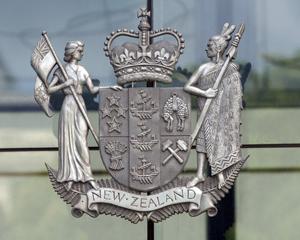The Government took the unusual step of putting a bill through all its stages in Parliament today as it moved quickly to fix a problem with the law covering the supervision of child sex offenders.
Justice Minister Simon Power said there were two "potential loopholes" in existing law which were created when the Parole Act 2002 was amended in 2007.
He said the loopholes might have allowed child sex offenders released on extended supervision orders to avoid conditions restricting their movements.
"These matters, if left unresolved, could have undermined the effectiveness of the extended supervision regime and put the safety of children at risk," Mr Power said.
Extended supervision orders are used for managing the release of child sex offenders who were not sentenced to preventive detention but still presented a high risk of re-offending on release.
The orders require child sex offenders to be on parole-type conditions for up to 10 years after release.
Mr Power said the 2007 amendments created doubt about matters that had previously been routine.
"The first area of doubt was whether electronically monitored curfews could be imposed beyond the first 12 months of an extended supervision order," he said.
"Previously, they could be imposed at any time during the period of the order.
"The second area of doubt was whether the Parole Board could impose residential conditions without the offender agreeing to comply with them.
"Previously, the offender's agreement to comply was not required."
Mr Power said today's bill cleared up those issues and would reduce the opportunity for child sex offenders to re-offend.
Labour's law and order spokesman, Clayton Cosgrove, said Mr Power was right to take the bill through Parliament quickly.
"The advice we've had is that the Department of Corrections could well be facing litigation from a number of high-profile sex offenders who are currently more than 12 months into an extended supervision order," he said.
All the parties had previously agreed to put the bill on the fast track, but the Greens said they had not been aware that Attorney-General Chris Finlayson was going to present an adverse report.
The report, presented just before the debate on the bill began, said it could be inconsistent with the Bill of Rights Act in the areas of retroactive penalties and double jeopardy.
It suggested other ways to achieve the same result which would not breach the Act.
Apart from the Greens, Parliament took no notice of the report and the bill became law on a 113-9 vote.



